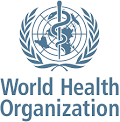
The World Health Organization has temporarily halted trials using hydroxychloroquine and chloroquine on people who have COVID-19, in the wake of preliminary results published in The Lancet that showed that in 96,000 patients in nearly 700 hospitals around the world, those who were given hydroxychloriquine had a higher risk of death than those who were not.
The World Health Organization’s Executive Director, Dr Tedros Adhanom Ghebreyesus, announced the move in his regular media briefing on Monday, May 25.
His comments on the topic:
“On Friday, the Lancet published an observational study on hydroxycholoroquine and chloraquine and its effects on COVID-19 patients that have been hospitalised.
The authors reported that among patients receiving the drug, when used alone or with a macrolide, they estimated a higher mortality rate.
The Executive Group of the Solidarity Trial, representing 10 of the participating countries, met on Saturday and has agreed to review a comprehensive analysis and critical appraisal of all evidence available globally.
The review will consider data collected so far in the Solidarity Trial and in particular robust randomised available data, to adequately evaluate the potential benefits and harms from this drug.
The Executive Group has implemented a temporary pause of the hydroxychloroquine arm within the Solidarity Trial while the safety data is reviewed by the Data Safety Monitoring Board.
The other arms of the trial are continuing.
This concern relates to the use of hydroxychloroquine and chloraquine in COVID-19.
I wish to reiterate that these drugs are accepted as generally safe for use in patients with autoimmune diseases or malaria.
WHO will provide further updates as we know more.”